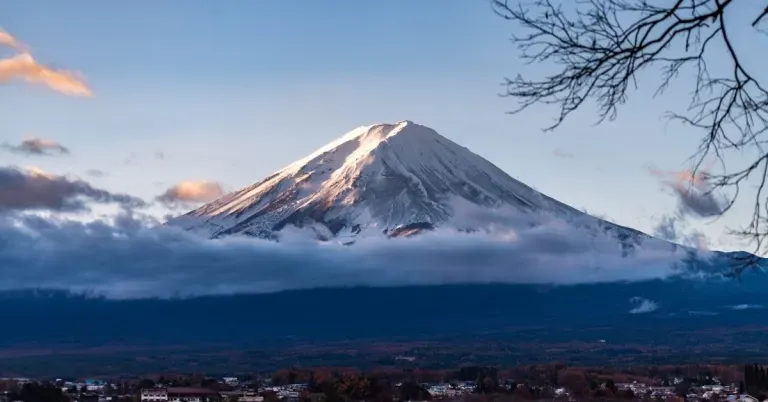Our favourite places to stay on this sleepy Cebu island.
Mount Fuji’s First Snow Delayed by Record Heat: What This Means for Travelers

Japan’s famed Mount Fuji has yet to receive its first snowfall this winter, setting a 130-year record for the latest arrival of snow on the summit. Known for its picturesque snowcap, typically forming by early October, the peak now remains bare as November approaches. Japan's Kofu Local Meteorological Office, which has tracked Mount Fuji’s first snowfall since 1894, confirmed that October 29 marks the longest delay yet, surpassing the previous record of 26 Oct 2024, set in both 1955 and 2016.
Also read: Japan’s Tourism Boom Causes Strain on Credit Card Companies
Japan still awaiting first snowfall this year
The late snowcap is attributed to Japan’s unusual weather patterns this year, with record-breaking warmth across the country. Following Japan’s hottest summer since records began in 1898, temperatures this fall have also been unseasonably high. Analysis by Climate Central links this heat directly to the climate crisis, stating that the unusual October warmth in Japan was made three times more likely by global warming. Factors like the ongoing El Niño pattern and the burning of fossil fuels are intensifying temperatures worldwide, and experts are urging action to limit global warming to 1.5°C above pre-industrial levels.
Mount Fuji's snow delay is not just a concern for climate scientists but also for local tourism and Japan’s economy. The first snowfall on Fuji signals the transition to winter and draws countless visitors eager to capture the iconic, snow-capped peak. Recent years have seen an increase in over tourism around the mountain, with overcrowding, littering, and strain on facilities becoming significant issues. To address this, Japanese authorities recently introduced a tourist tax of around ₱760 per person and set a daily visitor limit of 4,000 to protect the area’s natural resources.
Mount Fuji, which spans Japan’s Yamanashi and Shizuoka prefectures, is recognized as a UNESCO World Heritage site and is a deeply symbolic landmark for Japan. The delayed snowcap serves as a vivid reminder of the broader impacts of the climate crisis, potentially affecting water supplies, local ecosystems, and winter tourism. Fuji’s snowless summit this late in the season has led many to wonder if warming temperatures could redefine winter as we know it in Japan.
Also read: Japan Autumn 2024: Your Ultimate Guide to Fall Foliage and Best Travel Dates
As Japan’s climate continues to shift, the late arrival of Mount Fuji’s snowcap offers both locals and tourists a stark look at the challenges posed by climate change—perhaps underscoring the urgency for sustainable tourism practices and environmental awareness for those visiting the nation’s most beloved natural icons.
Featured image credit: jhengyaolin via Canva Pro
Published at
About Author
Anne Mercado
Subscribe our Newsletter
Get our weekly tips and travel news!
Recommended Articles
10 Bantayan Island Resorts, Hotels, and Rentals for Your Tropical Escape 10 Best Mountain Cafes in the Philippines for Your Peak Coffee Experience Coffee date on the mountains, anyone?
10 Family Outing Ideas in Metro Manila Under ₱500 Looking for a weekend bonding with the family under ₱500? Head to these places, pronto!
10 Long Weekends in the Philippines in 2023 Book those flights ASAP.
Top 10 Post-Breakup Destinations for Healing and Self-Rediscovery Ready for a solo travel?
Latest Articles
Ultimate Camarines Norte Travel Guide: Waterfalls, Beaches, and More From surfing to secret waterfalls, Camarines Norte is your next escape!
Legoland Shanghai Opening in 2025: What to Expect New theme park alert in China
Pahiyas Festival 2025: A Vibrant Celebration in Lucban Quezon Pahiyas is back and brighter than ever!
Top 10 Family-Friendly Things to Do in Europe Unmissable experiences for all ages
Scoot’s Direct Flights from Singapore to Iloilo Are Finally Here — Here’s What You Need to Know Fly direct from Singapore to Iloilo with Scoot!

